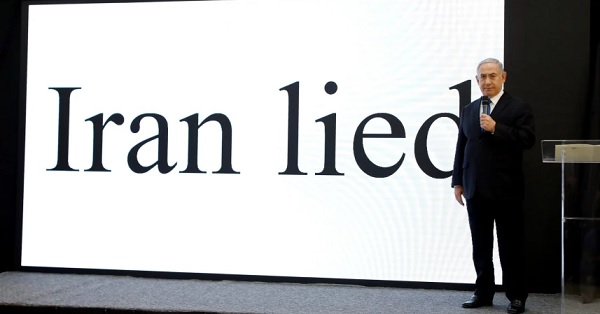Following claims by Prime Minister Benjamin Netanyahu that Iran is violating the terms of the multilateral deal designed to prevent it from obtaining nuclear weapons, Americans for Peace Now insists that diplomacy, inspections, and verification are more vital now than ever. If anything, Netanyahu’s revelations regarding the history of Iran’s nuclear program highlight how essential the Joint Comprehensive Plan of Action (JCPOA) is, providing the international community with a tool to curb Iran’s ambitions to build nuclear weapons.
Israel’s alleged obtaining of Iran’s secret nuclear archive appears to be an impressive intelligence coup. The evidence that Netanyahu showed, allegedly proving that Iran has continued working to build nuclear weapons while lying about it, is indeed a major cause for concern.
An understanding that Iran was determined to build nuclear weapons is the very reason that the five permanent members of the United Nations Security Council plus Germany (known as the P5+1) strove to fashion a nuclear deal with Iran in the first place. While the JCPOA provided Iran with sanctions relief as an incentive to abandon its nuclear weapons program, the signatories to the deal assumed it likely that Iran would attempt to cheat. Thus, the deal provides for a robust inspections regime. The International Atomic Energy Agency (IAEA) and national security experts from a number of countries – including the United States and Israel – have recently indicated that Iran is abiding by the terms of the agreement.
If Prime Minister Netanyahu possesses evidence to the contrary, proving that Iran is violating the agreement, it is incumbent upon him to share this information with the IAEA. The IAEA can then use recourse provided by the JCPOA to conduct additional inspections. If it emerges that Iran is indeed violating its obligations, sanctions waived by the P5+1 can be snapped back quickly.
If the JCPOA did not exist, there would be no inspections regime or multilateral framework through which to address Iranian efforts to build nuclear weapons. Any push to jettison diplomacy and international agreements in favor of war would have disastrous regional consequences, likely to exceed the disastrous results of the 2003 Iraq war. The serious crisis brewing between Israel and Iran in Syria underscores the volatility of the present moment.
The JCPOA must be given a chance to succeed.
